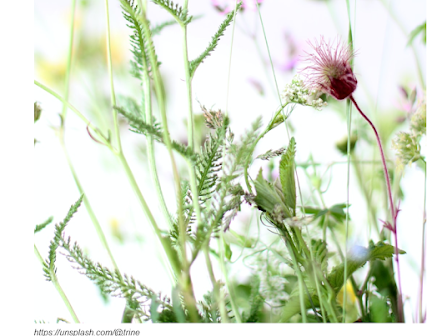15 Health Plants You Didn't Know Could Be Used To Derive Medicines
1. Aloe vera
1. Aloe vera – This plant is mostly known for its ability to heal burns, but it can also be used to treat constipation, high blood pressure, and diabetes.
2. Basil – This plant is known for its ability to help with stomach issues, but it can also be used to treat anxiety and depression.
3. Chamomile – This plant is mostly known for its ability to help with sleep, but it can also be used to treat anxiety, skin issues, and indigestion.
4. Garlic – This plant is known for its ability to help with heart health, but it can also be used to treat colds, infections, and high cholesterol.
5. Ginger – This plant is known for its ability to help with nausea, but it can also be used to treat arthritis, migraines, and respiratory problems.
6. Lavender – This plant is known for its ability to help with relaxation, but it can also be used to treat insomnia, anxiety, and skin issues.
7. Lemon balm
2. Ashwagandha
8. Ashwagandha – Ashwagandha is an Ayurvedic medicinal herb. It has been used by Indians for centuries to treat numerous health ailments. It is known to be a powerful adaptogen as it helps the body resist physical, mental, and emotional stress. It also helps to improve overall vitality, strength, and vigor. This herb can be used to help with anxiety, fatigue, arthritis, and other chronic diseases. It can also help to improve mental clarity, focus, and concentration.
3. Basil
3. Basil – Basil is a common herb that has been used for centuries as a medicinal plant. It is known to reduce inflammation and has been used to treat various conditions including indigestion, fever, and respiratory ailments. Basil is also thought to have antibacterial properties, and research points to potential for its use in the treatment of cancer. It is a great source of vitamin C, potassium, magnesium, and Iron. In Ayurveda, it is revered for its use as a medicinal herb and can be used to help with depression, anxiety, asthma, and even the common cold.
4. Begonia
4. Begonia – This medicinal plant has a stunning beauty and comes in a variety of shapes, sizes, and colors. Begonia is often used for skin conditions such as acne, eczema, and psoriasis. It is known to reduce inflammation on the skin and even help with symptoms of allergies. Begonia has many compounds like flavonoids and terpenes, which give it its therapeutic properties. It can be consumed as tea or applied directly to the skin topically. Begonia is also thought to help with digestion, boost energy levels, and even help with respiratory problems such as bronchitis and asthma.
5. Calendula
5. Calendula – Calendula is a versatile medicinal plant with many uses and benefits. It is used for calming inflammation and irritation in the skin, as it contains triterpene and saponin esters that are known to have soothing and anti-inflammatory properties. Calendula is also used for treating oral contraceptive issues like sore throats caused by coughing, gum issues, and even mouth ulcers. It is known to be antifungal, antiviral, and antibacterial, making it great for all sorts of skin-related issues. The calming properties of this plant also make it incredibly helpful for treating skin conditions like eczema, psoriasis, and other skin-related illnesses.
6. Chamomile
6. Chamomile – Chamomile is a widely known plant that is used to make tea. It is much more than a relaxing drink, though. Chamomile has antiseptic, anti-inflammatory, and antispasmodic properties, making it a powerful medicinal herb for treating a myriad of ailments. It can be used as a natural treatment for colds, fevers, and headaches and can even be used to treat gastrointestinal issues like indigestion, nausea, vomiting, and even diarrhea. The antispasmodic properties are great for treating pain, cramps, and muscle spasms. Chamomile is also known to be a natural sleep aid, making it a great choice for those suffering from insomnia.
7. Dandelion
7. Dandelion – Dandelion is an incredibly beneficial plant for those suffering from skin diseases. It is known for its anti-inflammatory and antiseptic properties, making it effective in treating wounds, burns, and skin diseases like eczema. When used internally, dandelion can help to cleanse and detoxify the body while also aiding in digestion, stabilizing blood sugar levels, and reducing water retention caused by bloating. It can also be used to reduce fever and provide relief from respiratory conditions like bronchitis. You can ingest the leaves or roots of the dandelion plant or drink the tea of steeped dandelion leaves.
8. Echinacea
8. Echinacea – Echinacea is an herb from the daisy family, and it is known to help fight off infection and boost your immune system. It is a potent anti-inflammatory that can help reduce inflammation in the mouth and throat, relieving pain and soreness. It is also beneficial for reducing symptoms of upper respiratory tract infections, like coughing, sneezing, and stuffiness. Echinacea also has antifungal, antiviral, and antibacterial properties, making it great for helping ward off cold and flu symptoms. You can prepare a tea with echinacea root or take it in pill or liquid form.
9. Feverfew
9. Feverfew – Feverfew is another herb from the daisy family, and it is known for its anti-inflammatory and antispasmodic properties. It is especially known for preventing and relieving migraine headaches. Feverfew can also be used to treat fever, headaches, arthritis, menstrual cramps, and aching muscles. You can consume feverfew as a tea or prepare a topical application to reduce swelling and fever. It is important to note that feverfew has a possible interaction with a number of medications and other supplements, so it is best to consult with a healthcare provider before using it.














0 Comments